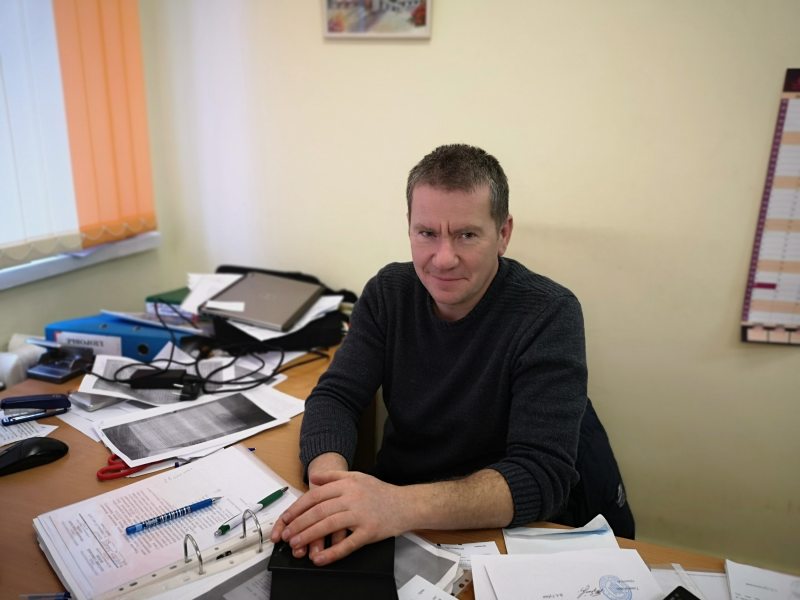At least 11 political prisoners with disabilities remain behind bars in Belarus
People with disabilities are a vulnerable group in places of imprisonment. To communicate with the environment fully, they need additional conditions. For these people, detention is more often experienced as torture compared to others.
As of December 3, 2024, it is known that at least 11 political prisoners with disabilities remain behind bars in Belarus. Thus, Alexander Kisel, observed by a psychiatrist since birth, has a disability. He was sent to a psychiatric hospital for compulsory treatment. Aksana Liaushova has a leg condition, cannot move independently, and has a disability. She was sentenced to two years of imprisonment in a penal colony. Architect Aliaksei Paretski and artist Kanstantsin Prusau, cousin of the representative of the Kalinoŭski Regiment Siarhei Franchuk also have disabilities. Uladzimir Hundar, an activist and local historian from Baranavičy, has a disability (the man does not have a leg). He was sentenced to 20 years of imprisonment. Some people with disabilities were released after several waves of pardons in 2024.
"I think this is good for people who have been released, but it also has another pragmatic factor," the director of the Office for the Rights of People with Disabilities Siarhei Drazdouski told Viasna. "Even the authorities realized that they did not need people to die in prisons, which is why they started releasing people with disabilities. However, it cannot be said that this year we have seen a weakening of repression against the people with all the features of a person with a disability but with no appropriate certificate. Despite the release of some, new people find themselves behind bars."
People with disabilities who face persecution can contact the Office for the Rights of People with Disabilities through official channels. It contacts all human rights organizations and ensures that people's special needs are taken into account. Unfortunately, there are no specialized human rights organizations in Belarus today that would deal with the rights of people with disabilities. Therefore, it is worth connecting with similar organizations abroad.
Another group that the Office works with is people with disabilities who are in forced political emigration.
"If we generalize, then international norms that relate to migration processes and refugees very poorly maintain respect for the individual needs of people with disabilities," he stressed. "There is supposedly no discrimination there — all people are just equal. But that's what discrimination is all about. These standards were written for healthy young people. The conditions where people with disabilities find themselves are almost not taken into account in international rules."
Siarhei Drazdouski also stressed that the gap between different categories of people with disabilities is increasing in Belarus. If the image of some people is actively used by pro-government media to emphasize positive changes in their lives, at the same time others have begun to disappear "from the screens" even more.
"Therefore, the picture inside the country is not very clear," he concluded. "You can find people with disabilities in Belarus who will say that life has become easier, although it is difficult to say in what regard exactly. But you won't find the other side, because it's scary. It's scary to complain in Belarus today."

Aleh Hrableuski: "The persecution has made it visible how disabling our penitentiary system is”
During the 31st session of the Committee on the Rights of People with Disabilities, the Civil Society Report on the Situation of People with Disabilities in Belarus was heard. People with an official disability status, those suffering from chronic diseases, and those who became disabled during their imprisonment are behind bars.
"Access of political prisoners to necessary medicines and medical services is significantly limited. The material conditions in prisons are not suitable for people with disabilities, and requests for reasonable accommodation and social support are regularly rejected. Families of political prisoners with disabilities or chronic diseases are informally advised to conceal the political motivation of detention in order to minimize the chances of victimization and repression, as well as to avoid obstacles to visiting their loved ones in prisons," it said.

















